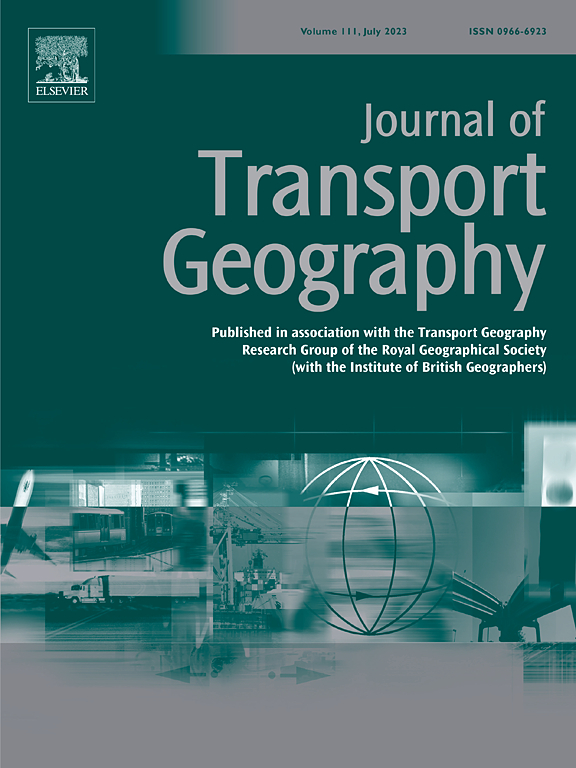Exploring biases in travel behavior patterns in big passively generated mobile data from 11 U.S. cities
IF 5.7
2区 工程技术
Q1 ECONOMICS
引用次数: 0
Abstract
Passively generated mobile data has increasingly become a crucial source for studying human mobility; however, research addressing potential biases within these datasets remains scarce. This study delves into the critical issue of inherent biases in mobile data, a resource that has transformed the study of human mobility. Using a well-established mobile dataset, we analyze biases in 11 diverse metropolitan statistical areas (MSAs) and spotlight disparities in data quality and mobility metric biases, as compared to the National Household Travel Survey (NHTS). A two-level hierarchical linear regression model unveils the contributing factors to these biases, most notably, data quality, user sociodemographic traits, and city sizes. We further highlight the unexpected introduction of uncertainty by stay-point algorithms during data processing. The findings of our research underscore the necessity of meticulously identifying, understanding, and mitigating such biases in mobile data before its deployment in shaping transportation policies and investments. Ultimately, our study advances our understanding of bias in mobility data, which is a fundamental step towards refining methodologies that can effectively address these biases, thereby enhance the value and accuracy of mobile data in transportation studies.
从美国11个城市被动生成的大型移动数据中探索旅行行为模式的偏见
被动生成的移动数据日益成为研究人类移动性的重要来源;然而,在这些数据集中解决潜在偏差的研究仍然很少。这项研究深入研究了移动数据中固有偏见的关键问题,这一资源已经改变了人类流动性的研究。使用完善的移动数据集,我们分析了11个不同大都市统计区域(msa)的偏差,并与全国家庭旅行调查(NHTS)相比,重点关注数据质量和流动性度量偏差的差异。一个两级层次线性回归模型揭示了这些偏差的影响因素,最明显的是数据质量、用户社会人口特征和城市规模。我们进一步强调了驻留点算法在数据处理过程中意外引入的不确定性。我们的研究结果强调,在将移动数据用于制定交通政策和投资之前,有必要仔细识别、理解和减轻此类偏见。最终,我们的研究促进了我们对交通数据偏差的理解,这是完善方法的基本步骤,可以有效地解决这些偏差,从而提高交通研究中移动数据的价值和准确性。
本文章由计算机程序翻译,如有差异,请以英文原文为准。
求助全文
约1分钟内获得全文
求助全文
来源期刊

Journal of Transport Geography
Multiple-
CiteScore
11.50
自引率
11.50%
发文量
197
期刊介绍:
A major resurgence has occurred in transport geography in the wake of political and policy changes, huge transport infrastructure projects and responses to urban traffic congestion. The Journal of Transport Geography provides a central focus for developments in this rapidly expanding sub-discipline.
 求助内容:
求助内容: 应助结果提醒方式:
应助结果提醒方式:


